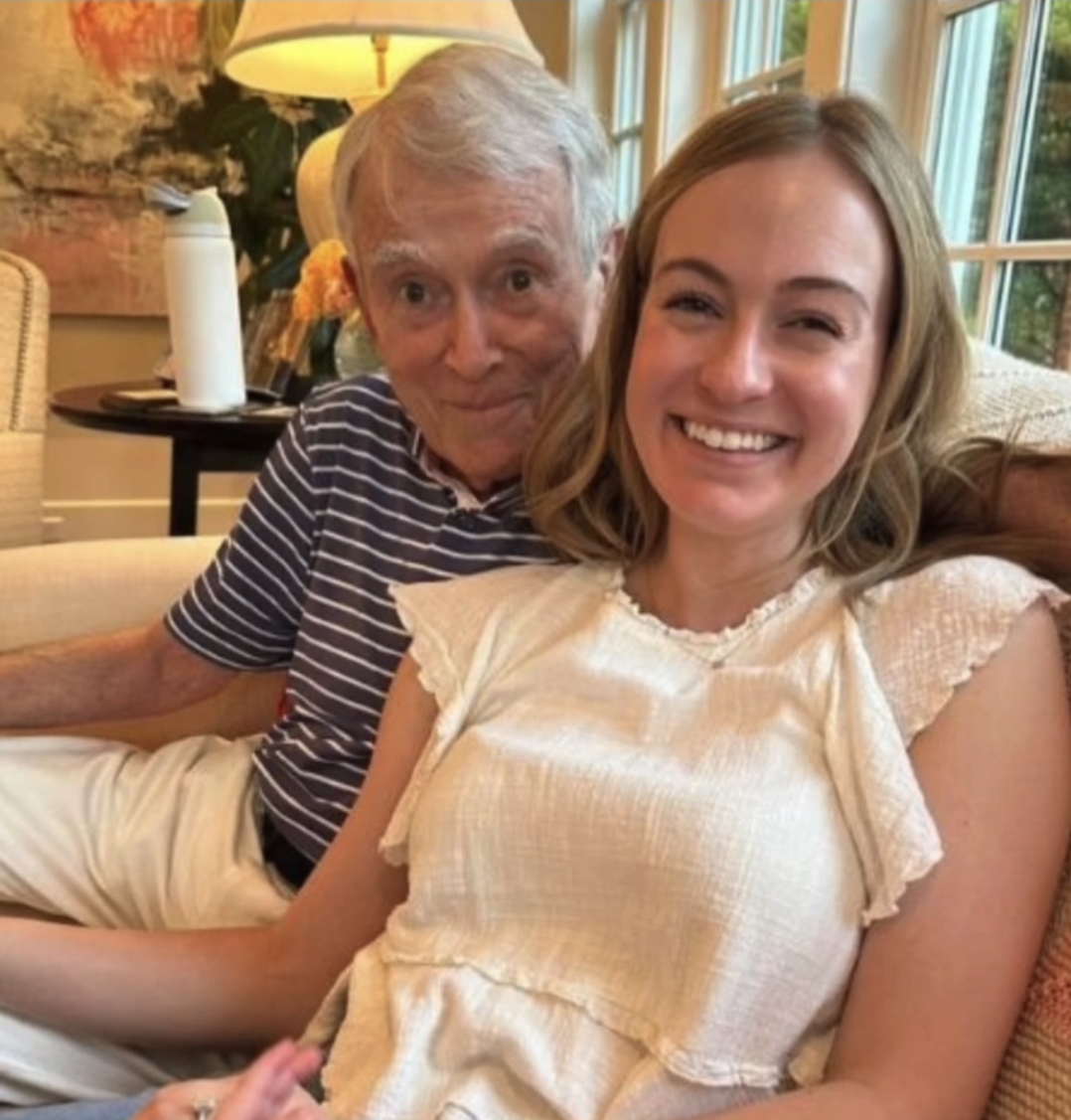We were simply sitting on the couch. Nothing dramatic—no hospital machines, no dimmed lights—just sunlight streaming through the windows and the gentle sound of a cartoon playing for my daughter in the background.
Dad had been slowly deteriorating for months, battling Parkinson’s combined with a gradual, cruel memory loss. Some days he remembered my name; other days, he only smiled as if I were a stranger he once knew but couldn’t place.
But that afternoon, he was clear and focused. He looked at me as if he truly saw me. I held his hand, and he gently squeezed it, saying, “You turned out better than I ever hoped.”
I laughed, trying to downplay it. “Well, I had a good teacher.”
But he shook his head slowly, his tired eyes fixed on me as if trying to imprint the moment. “No,” he said more firmly. “I didn’t teach you much. You did it on your own. And I’m proud of you… more than you’ll ever understand.”
His words struck me like a wave, and for a moment, everything else faded away. This wasn’t the usual praise from him—a man of few words, who showed love mostly through tough encouragement and practicality. This was different.
I’d spent much of my life trying to prove I was good enough to him—that I could make him proud. It often felt like chasing something just out of reach, no matter how hard I tried. But sitting there, with him looking at me that way, it finally felt like I was enough.
I didn’t know what to say. Afraid to ruin the moment, I murmured, “I’m just doing what I can.”
His grip tightened slightly—his frail fingers strong in an unexpected way. “You’ve always done more than enough,” he said quietly. “I need you to know that.”
Then the moment passed. He slipped back into his fading world, and I wasn’t sure if he’d remember the conversation. But those words stayed with me.
The days that followed were a blur. Dad’s condition worsened, and he passed away a week later, leaving a hole in my heart I wasn’t sure how to fill. But in those last moments, he gave me something I hadn’t realized I needed: his approval and acknowledgment—something I’d longed for my whole life.
Grief hit in waves, mixed with guilt. I wondered if I’d done enough, been there enough, said “I love you” enough. I replayed those final moments, wishing I could’ve done more. But then I realized: he was proud of me. The man who was so hard to impress had, in the end, told me I was enough. And that had to be enough.
A few weeks after the funeral, while going through Dad’s things at my parents’ house, I found an unexpected treasure—his old journal. At first, I hesitated to open it, feeling it was too private. But something pushed me, and I read the first page.
There, in his handwriting, were words I never expected to see:
“I’ve always been harder on her than I should have been. I wanted her to be better than me, to have a better life. I didn’t know how to show her that without pushing her. I hope she knows I love her, even if I didn’t say it enough.”
I was breathless. The words hit me like a punch—but a good one. After all the years wondering if I was enough, here was proof I always had been.
It was strange to realize that his love had always been there, even if it wasn’t expressed the way I wanted. I’d measured my worth by his approval, but now I saw love isn’t just in words or praise—it’s in the quiet moments, the unspoken sacrifices, the shared time.
That journal was a turning point. Not only did I find his love, but I also found a new understanding of myself. I’d spent years trying to earn love and approval by doing things “right.” But in truth, I was already enough.
Months later, as the grief softened, I began to live differently. I let go of needing constant validation and started making choices based on what I truly wanted.
I even began a project I’d been afraid to try: writing a book. Dad had always encouraged me, but I doubted myself. Now, I was writing for me—not for approval.
Then, unexpectedly, an old friend who was a book editor stopped by at a coffee shop. After hearing about my project, she offered to help me publish it.
What started as a personal journey became a way to reach others struggling with the same doubts and insecurities.
That’s when I realized: sometimes our greatest gifts come from the fears we face. In embracing my vulnerability, I created something that could help others. It was Dad’s quiet love and encouragement that gave me the strength to believe in myself.
So, what’s the lesson? It’s simple but powerful: You are enough just as you are. You don’t need to prove your worth to anyone. Often, the love you seek has already been there, waiting for you to see it. And when you stop chasing validation, life rewards you in ways you never expected.
If this story resonates with you, please share it with someone who needs to hear it. Let’s remind each other that we are enough—and keep growing together.
